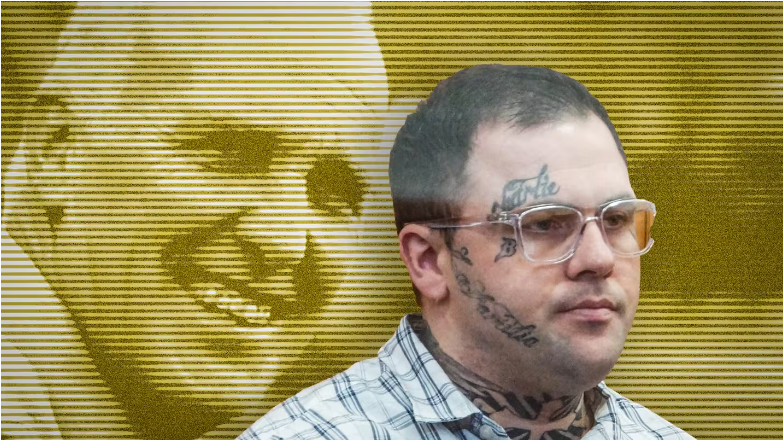Stolen Mercedes driver Kyle Clarke tells police he thought he was dead after crash that killed Allister Christie

Allister Christie of Blenheim and inset of Kyle Clarke. Photo / NZME picture supplied by family.
“I didn’t think I would make it - the car was filling with water,” a tearful Kyle Clarke told police in an interview after the high-speed crash and his subsequent arrest in March 2022.
The 31-year-old is defending charges linked to the circumstances around Allister Christie’s death as a result of the crash, at a judge-alone trial in the Blenheim District Court.
Clarke has denied charges of reckless driving causing death, dangerous driving causing death (in the alternative) and failing to stop to ascertain injury or death.
He had earlier admitted charges of entering Christie’s Blenheim home on March 12, 2022, taking the keys and then taking the Mercedes, having initially told police he’d taken the car from outside the house when he’d seen the keys were in it.
“I took the car because I wanted to get out of town and go somewhere to start afresh,” Clarke told police in an interview played in court today.
He also talked about the split-second impact and the moments immediately after the crash in which both cars ended up in a canal. He said he was knocked unconscious and “woke up drowning” in water over his head.

“I was knocked out and bleeding. I thought I was dead - I didn’t know what to f****** think.”
Clarke also told police that if he could have helped Christie he would have, but he wasn’t thinking straight after the exertion needed to get out of the Mercedes submerged in freezing water.
Clarke then allegedly ran from the scene, injured and “choking on his own blood”, to an associate’s house. He was arrested in the following days after a standoff with police at a house in Blenheim.
Christie, aged 70, wasn’t found until the morning after the crash, most likely having died from being immersed in water, after his car was ricocheted by the high-speed impact into a culvert in the Ōpaoa River.
Clarke said that he “vomited his ring out” for hours after learning Christie had died.
‘I gunned it’
Christie had given chase when he spotted the car the day after it was stolen. The pair did not know each other but Clarke recognised the silver SsangYong driven by Christie - a “much nicer, 10-times quicker car”, parked in front of the blue Mercedes he’d taken.
The pair converged on a roundabout, and the high-speed chase that began on Blenheim’s quiet Sunday streets progressed to a busy state highway.
Clarke told police he “didn’t want to be caught so I gunned it”.
He estimated Christie was chasing at about “240 kilometres an hour” - a speed later discredited in expert evidence, but fast enough to startle other drivers and the mother with children in her car who pulled over to let a frustrated Christie pass.
After turning off State Highway 1 into an open, rural road, Clarke allegedly accelerated heavily for a further 3.3km towards the Ōpaoa River at speeds up to 160 km/h.
As he approached a stopbank before the river, described as a “blind hump” drivers were unable to see over until near the top, it’s alleged he planned an evasive manoeuvre in the hope Christie would go past and not see him.
Moments later, Christie came over the stopbank at a speed estimated at more than 120km/h. His vehicle launched into the air and landed on its nose, skidded, and struck the rear of the blue Mercedes, pushing both vehicles into the river.
“He hit me that hard I’m surprised my head is still on my shoulders,” Clarke told police.
Those few seconds have perplexed forensic crash experts and have led to hours of cross-examination of detailed evidence from the prosecution and defence.

Debris scatter suggested the vehicles were locked together upon impact before falling into the canal.
The scene was likely contaminated by vehicles driving past in the hours after the crash, as police were being alerted and made their way to secure the scene.
Closing submissions will be delivered before a decision next Friday by Judge Jo Rielly, who said the case presented some “unique legal issues”.
The Crown is focused on whether Clarke’s alleged reckless driving caused Christie’s death, while the defence is focused on causative events and the moments leading up to the collision.
Tracy Neal is a Nelson-based Open Justice reporter at NZME. She was previously RNZ’s regional reporter in Nelson-Marlborough and has covered general news, including court and local government for the Nelson Mail.

